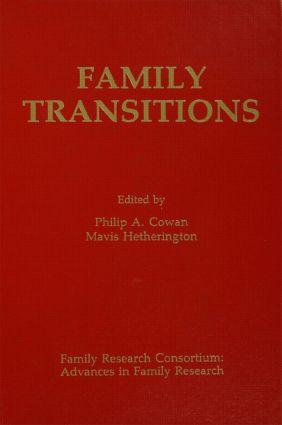
Zustellung: Di, 14.01. - Sa, 18.01.25
Versand in 2 Wochen
VersandkostenfreiBestellen & in Filiale abholen:
This volume, the result of the second annual Summer Institute sponsored by the Family Research Consortium, focuses on family transitions--both normative and non-normative. The subject of family transitions has been a central concern of the consortium largely because studies of families in motion help to highlight mechanisms leading to adaptation and dysfunction. This text represents a collective effort to understand the techniques individuals and families employ to adapt to the pressing issues they encounter along their life course.
Inhaltsverzeichnis
Contents: Part I:Perspectives.P.A. Cowan, Individual and Family Life Transitions: A Proposal for a New Definition. G.H. Elder, Jr., Family Transitions, Cycles, and Social Change. J.R. Dura, J.K. Kiecolt-Glaser, Family Transitions, Stress, and Health. Part II:Normative and Nonnormative Transitions.C.P. Cowan, P.A. Cowan, G. Heming, N.B. Miller, Becoming a Family: Marriage, Parenting, and Child Development. D. Baumrind, Effective Parenting During the Early Adolescent Transition. E.M. Hetherington, The Role of Individual Differences and Family Relationships in Children's Coping with Divorce and Remarriage. G.R. Patterson, D.M. Capaldi, Antisocial Parents: Unskilled and Vulnerable. E.A. Blechman, Effective Communication: Enabling Multiproblem Families to Change. Part III:Metaphors and Models.J.M. Gottman, Chaos and Regulated Change in Families: A Metaphor for the Study of Transitions. R.F. Falk, N.B. Miller, A Soft Models Approach to Family Transitions.
Produktdetails
Erscheinungsdatum
01. Januar 1991
Sprache
englisch
Seitenanzahl
332
Herausgegeben von
Philip a Cowan, E Mavis Hetherington
Verlag/Hersteller
Produktart
gebunden
Gewicht
694 g
Größe (L/B/H)
234/164/26 mm
ISBN
9780805807844
Entdecken Sie mehr
Bewertungen
0 Bewertungen
Es wurden noch keine Bewertungen abgegeben. Schreiben Sie die erste Bewertung zu "Family Transitions" und helfen Sie damit anderen bei der Kaufentscheidung.









